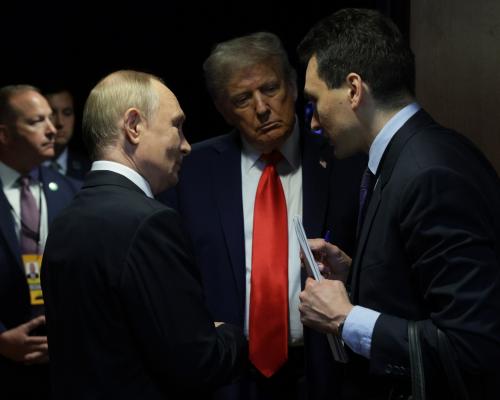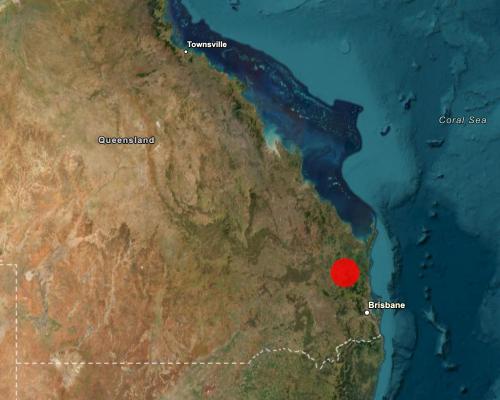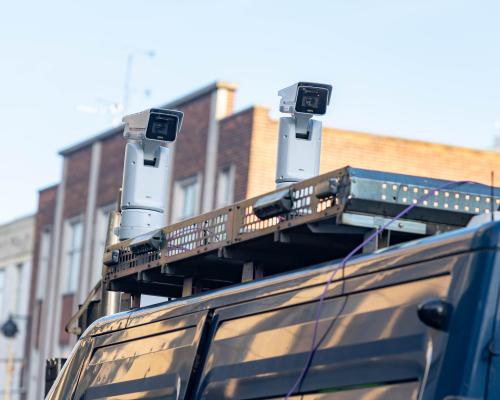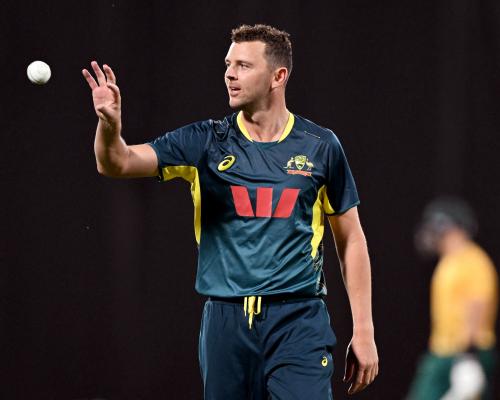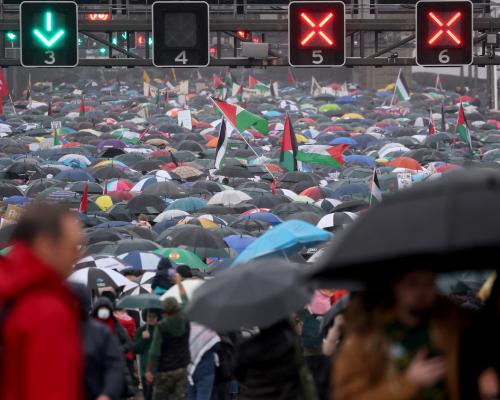
The New South Wales premier, Chris Minns, risks going down in history as the most conservative premier of the modern era.
Renowned for his political nous, his slick media management, urbane delivery and ability to tamp down controversy, Minns is perennially attuned to the loud voices of the shock jocks on Sydney radio and in the Murdoch media.
But his decision to oppose the march for Palestine across the Sydney Harbour Bridge on Sunday was a critical error of judgment – and the 100,000 or more people who braved torrential rain and wind to walk for those in Gaza told him so.
There were women in hijabs, men in Palestinian scarves, families with children, older couples, unionists and tens of thousands of young people from all parts of Sydney. Muslims, Jews and Christians declared their faith with placards.
The turnout, and its diversity, suggest people have had a gutful of the images of starving children, of desperate people risking their lives in a scramble for food at aid stations, of bombed out buildings as far as the eye can see.
They’re prepared to put aside their reservations about being associated with one side of the Israel-Palestinian conflict in the interests of humanity.
If it’s not genocide, what’s taking place in Gaza is a mass displacement, because it’s hard to see how anyone, let alone children, can live in what is left of Gaza.
Along with the horror over what’s happening in Gaza, there was also a palpable sense of anger towards Minns and, to a lesser extent, the prime minister, Anthony Albanese, over Australia’s fence-sitting.
“Hey Chris Minns – whose bridge? Our bridge!” protesters shouted as they marched.
A placard carried onto the bridge also called out the premier: “Hey Minns. Walking on a bridge won’t starve us, but blocking aid starves Palestinians. We will survive, they won’t.”
“Public safety concerns YES! The Palestinian public are not safe being starved and bombed,” stated another.
Chants rippled through the crowd calling for Albanese to act.
The legal right to protest is fundamental to the proper functioning of our democracy. Sometimes the institutions of government lag far behind public opinion – or fail to recognise the need for change.
Just ask the suffragettes, the activists who campaigned for the right of First Nations peoples to vote, for marriage equality for LGBTQ+ people, or the union movement, which fought using protest for the eight-hour workday.
In the face of an unfolding tragedy such as Gaza, people feel understandably powerless. Turning up and marching in a place that can accommodate huge numbers while garnering international attention is a legal and effective option to tell politicians they are tone deaf.
Minns’ overtly pro-Israel stance and his natural reflex toward the conservative on this and other issues, such as pill testing, drug reform and the right to protest, are now rattling his own team.
Among the state Labor MPs who defied the premier and joined the march on Sunday were the deputy premier, Penny Sharpe, and Jihad Dib, Lynda Voltz and Stephen Lawrence, as well as federal MPs Ed Husic, Alison Byrne and Tony Sheldon.
Asked why he walked, Lawrence said: “It’s time for the world to act. It’s time for Australia to sanction Israel. The people have spoken today. They want more action from the Australian government to stop the genocide in Palestine.”
Privately, some inside state Labor are querying why Minns didn’t leave it to the police and the courts. The premier instead weighed in against the protest early, egged on by conservative pro-Israel commentators.
The result was a potential shambles. The Metro was closed for maintenance as was the eastern suburbs train line. There had been too little thought given to how 100,000 or more people might return from North Sydney, leading the police to turn around the massive crowd and walk them back to the city using geolocated texts and speakers on low-flying helicopters.
It all went as well as it could, thanks to the goodwill of the crowd, the organisers and NSW police.
But members of the Labor party, with its long heritage of progressive politics, human rights advocacy and embrace of direct action, want a serious rethink.
“It’s time for fundamental change of position in the Labor party on the right to protest, and our approach to this question of Palestinian protests,” Lawrence said on Sunday.
“The last few days have shown we cannot take away the right of people to protest. Inconvenience occurs. It should be minimised, but public safety is the key thing, and that is a key reason why the right to protest must be protected.”
-
Anne Davies is Guardian Australia’s NSW state correspondent.


